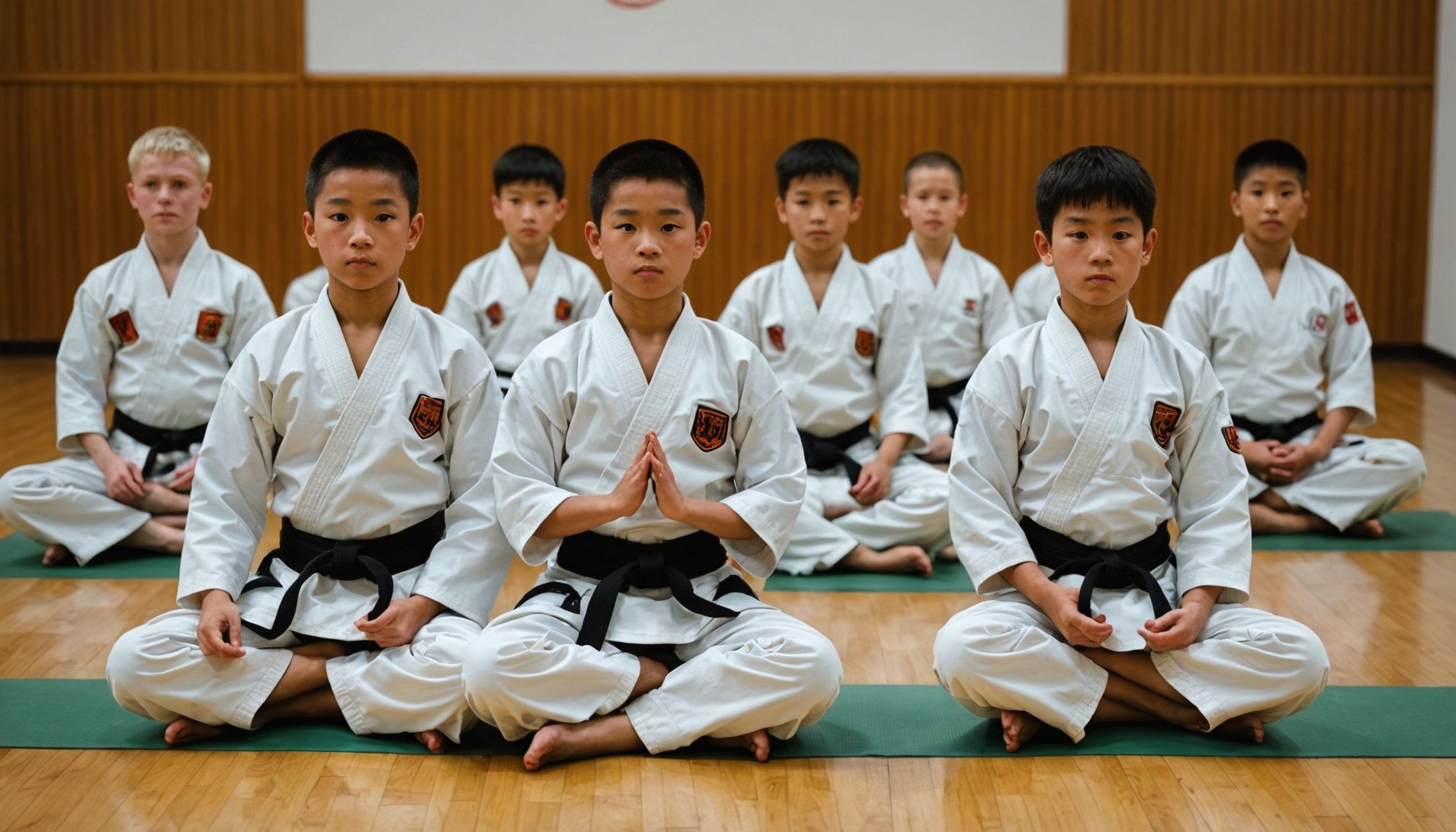Understanding Mindfulness in Martial Arts
In the realm of martial arts, understanding mindfulness is paramount to achieving peak performance. Mindfulness, a long-standing tradition in martial arts, emphasizes maintaining mental focus and heightened awareness throughout training and practice. But what exactly does mindfulness entail in this context? At its core, mindfulness in martial arts refers to the conscious awareness of one’s thoughts, emotions, and movements during practice. This means being fully present in each moment, both mentally and physically, thus cultivating a deep connection between the mind and body.
Historically, mindfulness and martial arts have been intertwined, with traditions stemming from ancient practices in cultures such as China and Japan. These practices often integrated meditation and a meditative approach to combat training, highlighting the importance of mental focus.
Topic to read : Elevate Your Taekwondo Game: Top Drills to Master Spinning Kicks for UK Athletes
The significance of mental focus in martial arts can’t be overstated. It nurtures a practitioner’s ability to maintain calm under pressure, improve reaction times, and make precise decisions during performance. These benefits underline why mindfulness is not just a peripheral aspect but a foundation that supports and enhances the entire martial arts training experience. Understanding these principles can revolutionize an individual’s journey in martial arts, paving the way for more balanced and disciplined practice.
Benefits of Integrating Mindfulness into Martial Arts Training
Integrating mindfulness into martial arts training offers a multitude of benefits that enhance both performance and personal growth. One of the primary advantages is the strengthening of mental and emotional resilience. Practitioners learn to approach challenges with calmness and clarity, significantly reducing stress and enhancing focus. This focus translates into disciplined training and more effective stress management, as martial artists remain composed under pressure.
Also to read : Unleashing Potential: Ultimate Weight Training Secrets from UK Sumo Champions
Real-life case studies from UK martial artists provide insight into how mindfulness contributes to performance improvement. For example, athletes who incorporate mindfulness techniques often report increased precision and control during competitions. Their ability to remain centred and present allows for optimal decision-making and reaction times.
This integration also builds mental toughness, allowing martial artists to recover quickly from setbacks and maintain steady progress in their training routines. Training that includes mindfulness practices not only prepares an athlete mentally but also supports holistic development, balancing physical prowess with psychological strength.
Mindfulness Techniques for Martial Artists
Integrating mindfulness into martial arts enriches training by fostering mental focus and physiological balance. Among the various techniques available, breathing exercises stand out.
Breathing Techniques
Control over breath enhances physical performance by promoting relaxation and concentration. Martial artists benefit from these exercises through increased stamina and reduced anxiety. Incorporation into daily routines allows practitioners to keep the mind attuned to the body’s movements, harmonising internal energy.
Meditation Practices
Meditation deepens the connection between mind and body, enabling practitioners to foster emotional resilience and mental clarity. Varied meditation styles serve different purposes, from enhancing focus to promoting recovery. Athletes report improved discipline and stress management through consistent meditation routines.
Visualization Strategies
Visualization aids in perfecting techniques by mentally rehearsing sequences and anticipating potential scenarios in training. It reinforces confidence, crucial for competitive success. Effective application of these strategies creates a mental blueprint, allowing practitioners to navigate challenges with precision during performances.
For martial artists, these mindfulness practices are not just beneficial but essential for achieving mastery.
Practical Tips for Curriculum Integration
Integrating mindfulness into existing martial arts curriculum enriches training and improves overall practitioner focus. Instructors can begin with simple steps to create a balanced training routine.
Steps for Integration
- Begin each session with brief breathing exercises. This practice not only centres the mind but also prepares the body for physical exertion.
- Incorporate regular meditation sessions post-training to help athletes recuperate and enhance mental resilience.
- Use visualization practices to mentally rehearse techniques, fostering confidence and preparedness for competitions.
Creating a Balanced Training Routine
Including mindfulness techniques requires a structured approach. Allocate specific times within classes to focus solely on mindfulness. Encourage athletes to maintain a personal mindfulness journal, tracking their progress and reflections.
Resources for Instructors
Instructors aspiring to enhance their understanding of mindfulness can explore books, online courses, and workshops. Resources such as professional development seminars provide in-depth insights into incorporating mindfulness effectively. By adopting these practices, martial arts educators cultivate a comprehensive learning environment that nurtures both physical capabilities and mental strength.
Case Studies from UK Martial Arts Schools
Exploring real-world applications of mindfulness within UK martial arts schools, we see significant positive outcomes. Several schools have successfully integrated mindfulness practices and reported enhanced performance benefits. These case studies highlight how mindfulness can transform training environments.
One renowned UK school observed marked improvements in students’ mental focus and overall discipline. An instructor noted, “Implementing mindfulness techniques has improved our students’ clarity and composure.” This aligns with testimonials from students who reported feeling calmer and more centred during training.
The integration of mindfulness practices varied across schools but frequently involved tailored meditation sessions and breathing exercises. Students at these schools consistently reflected positively on the changes, often sharing that they felt more equipped to manage stress and perform under pressure.
Analysis of the curriculum modifications showed not only an increase in performance but also in student satisfaction and retention. The incorporation of mindfulness wasn’t limited to physical techniques but included broader mental training, leading to a more holistic development. These case studies underscore the potential of mindfulness as a core aspect of martial arts education across the UK.
Conclusion: The Future of Mindfulness in UK Martial Arts
As the integration of mindfulness continues its expansion within the UK martial arts, future trends signal a promising evolution in training methodologies. Predicted innovations include more refined techniques that deepen mental focus, providing practitioners with enhanced resilience and performance capabilities.
Expert insights suggest that an increased adoption across various schools and styles is imminent, driven by demonstrable benefits like improved stress management and adaptability in competitive scenarios. This growth is expected to not only elevate individual prowess but also contribute to the overall development of martial arts as a discipline.
The future presence of mindfulness is set to enhance holistic training experiences significantly. By merging traditional practices with modern methodologies, martial artists are likely to engage in more structured contemplative routines, thus fostering a balance between physical agility and psychological fortitude. The broadened acceptance of mindfulness ensures a richer, more integrated learning environment, crucial for the modern martial artist’s journey.






